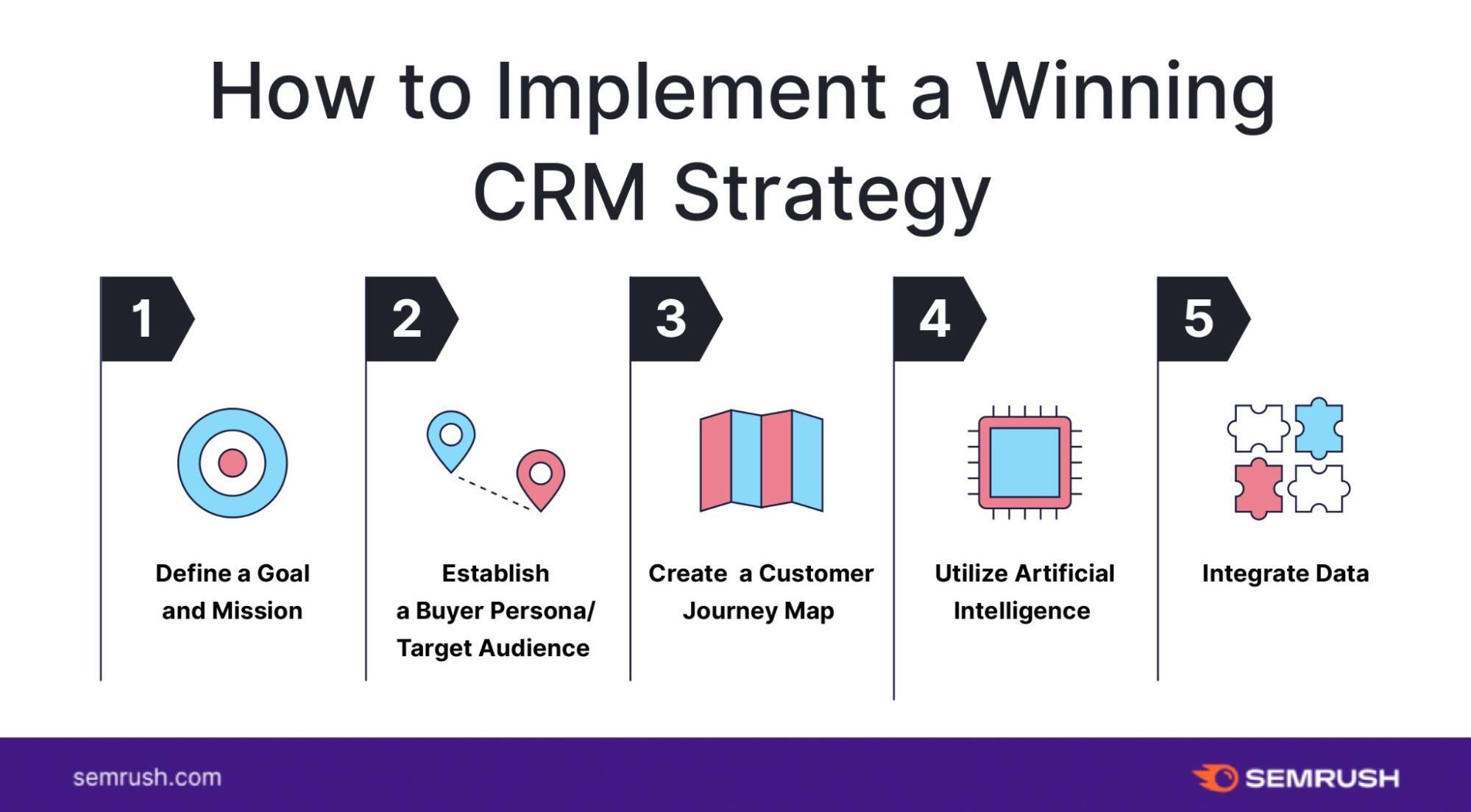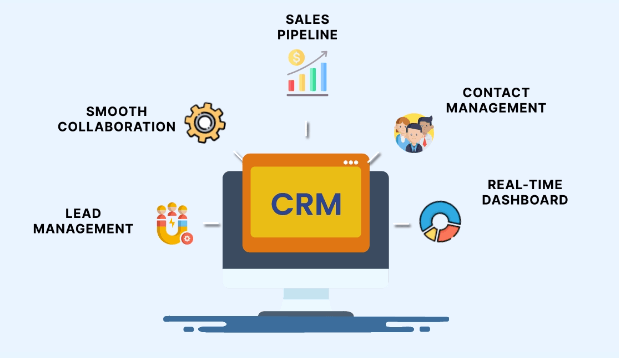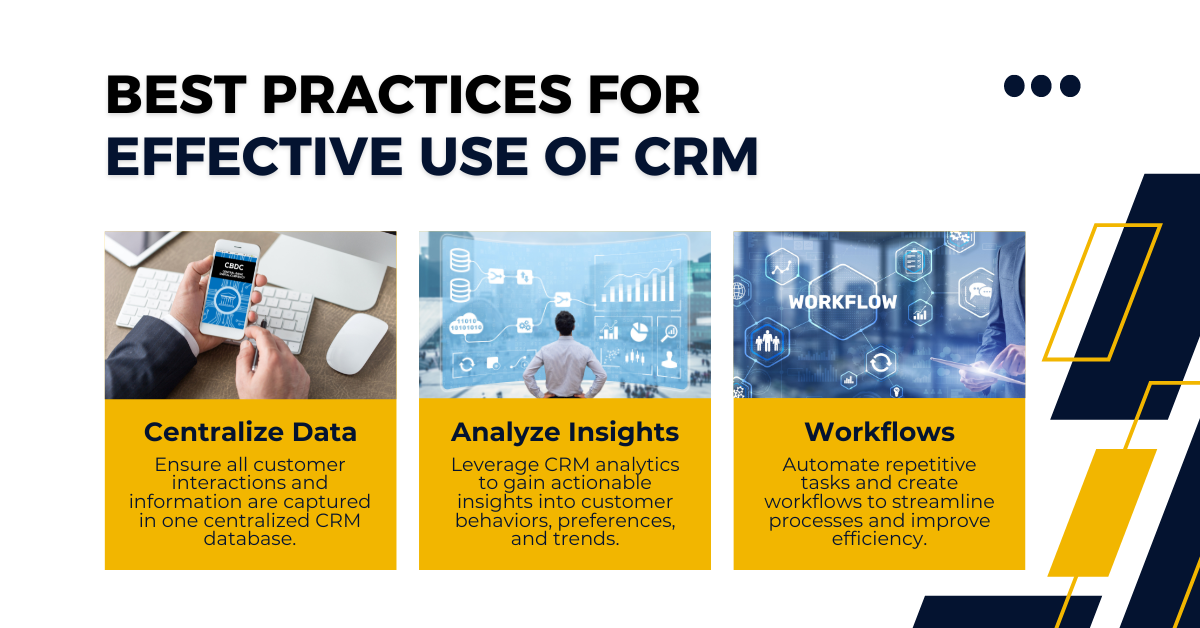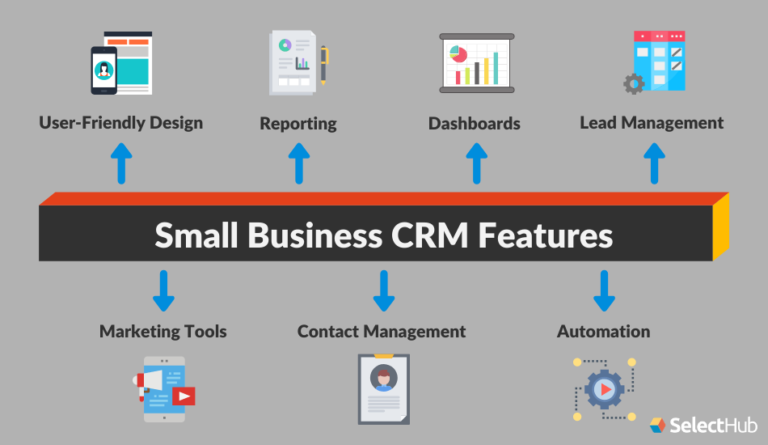Boosting Customer Loyalty and Sales: The Ultimate Guide to CRM Marketing with Customer Surveys
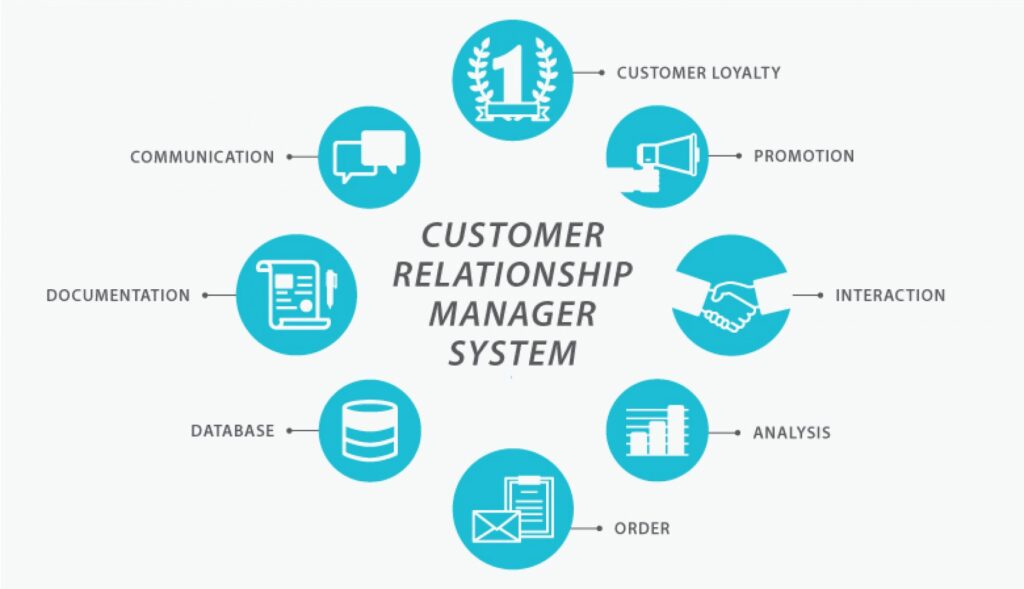
Boosting Customer Loyalty and Sales: The Ultimate Guide to CRM Marketing with Customer Surveys
In today’s hyper-competitive marketplace, understanding your customers is no longer a luxury—it’s a necessity. Businesses that truly understand their audience, their needs, and their pain points are the ones that thrive. That’s where the power of Customer Relationship Management (CRM) marketing and customer surveys converge. This comprehensive guide will delve into how to leverage CRM marketing, combined with insightful customer surveys, to build stronger customer relationships, improve your products and services, and ultimately, boost your sales.
What is CRM Marketing?
Customer Relationship Management (CRM) marketing is a strategic approach to managing and analyzing customer interactions and data throughout the customer lifecycle. The goal is to improve business relationships with customers, assist in customer retention, and drive sales growth. It’s about more than just storing contact information; it’s about understanding customer behavior, personalizing interactions, and anticipating needs.
At its core, CRM marketing involves:
- Data Collection: Gathering information about customers from various sources, including website interactions, purchase history, social media, and direct communication.
- Data Analysis: Analyzing the collected data to identify trends, patterns, and insights into customer behavior and preferences.
- Personalization: Tailoring marketing messages, offers, and experiences to individual customer needs and preferences.
- Automation: Automating repetitive tasks, such as email marketing, lead nurturing, and customer service interactions, to improve efficiency and consistency.
- Relationship Building: Fostering long-term relationships with customers through personalized communication, exceptional service, and loyalty programs.
Effective CRM marketing goes beyond simply tracking interactions. It’s about using that data to create a more personalized and valuable experience for each customer. This leads to increased customer loyalty, higher customer lifetime value, and ultimately, increased revenue.
Why is CRM Marketing Important?
In a world where customers have countless choices, standing out from the crowd is crucial. CRM marketing provides businesses with the tools and strategies needed to differentiate themselves and build lasting relationships. Here are some key reasons why CRM marketing is so important:
- Improved Customer Loyalty: By understanding customer needs and preferences, businesses can deliver personalized experiences that foster loyalty. Loyal customers are more likely to make repeat purchases and recommend your brand to others.
- Increased Sales and Revenue: Personalized marketing campaigns and targeted offers can significantly boost sales and revenue. CRM systems allow businesses to identify and target the most promising leads, increasing conversion rates.
- Enhanced Customer Experience: CRM systems enable businesses to provide seamless and consistent customer experiences across all touchpoints. This can lead to higher customer satisfaction and positive word-of-mouth referrals.
- Better Decision-Making: CRM systems provide valuable data and insights that can inform business decisions. By analyzing customer behavior and market trends, businesses can make more informed decisions about product development, marketing strategies, and customer service.
- Streamlined Operations: CRM systems automate many repetitive tasks, freeing up employees to focus on more strategic initiatives. This can lead to increased efficiency and reduced operational costs.
- Competitive Advantage: In today’s competitive market, businesses that effectively manage customer relationships have a significant advantage. CRM marketing helps businesses stay ahead of the competition by providing a deeper understanding of their customers and the ability to respond quickly to their needs.
The Role of Customer Surveys in CRM Marketing
While CRM systems provide a wealth of data, they don’t always tell the whole story. Customer surveys are a powerful tool for gathering direct feedback from customers, filling in the gaps, and gaining a deeper understanding of their experiences and perceptions. Surveys provide valuable insights that can be used to improve products, services, and overall customer satisfaction. They are the perfect companion to your CRM efforts.
Customer surveys can be used at various stages of the customer journey, including:
- Pre-Purchase Surveys: To understand customer needs and preferences before they make a purchase.
- Post-Purchase Surveys: To gather feedback on the customer’s experience with the product or service.
- Customer Satisfaction Surveys: To measure overall customer satisfaction and identify areas for improvement.
- Net Promoter Score (NPS) Surveys: To gauge customer loyalty and willingness to recommend your brand.
- Churn Surveys: To understand why customers are leaving and identify ways to prevent churn.
By combining the data from your CRM system with the insights from customer surveys, you can create a complete picture of your customers and their needs. This allows you to make more informed decisions, personalize your marketing efforts, and provide a truly exceptional customer experience.
Types of Customer Surveys for CRM Marketing
There are various types of customer surveys that can be used to gather valuable insights for your CRM marketing efforts. The best type of survey to use will depend on your specific goals and objectives. Here are some of the most common types of customer surveys:
- Customer Satisfaction Surveys (CSAT): These surveys measure a customer’s satisfaction with a specific interaction, product, or service. They typically use a rating scale, such as a 5-point or 7-point scale, to gauge satisfaction. CSAT surveys are easy to implement and provide a quick snapshot of customer satisfaction.
- Net Promoter Score (NPS) Surveys: NPS surveys measure customer loyalty and willingness to recommend your brand. Customers are asked to rate how likely they are to recommend your brand on a scale of 0 to 10. Based on their responses, customers are categorized as Promoters (9-10), Passives (7-8), or Detractors (0-6). NPS surveys provide a valuable metric for tracking customer loyalty over time.
- Customer Effort Score (CES) Surveys: CES surveys measure the effort a customer has to exert to get a problem solved, a request fulfilled, or a question answered. They typically ask customers to rate the effort required on a scale, such as “Very Easy” to “Very Difficult.” CES surveys can help you identify areas where you can improve the customer experience by making it easier for customers to interact with your business.
- Feedback Surveys: These surveys are more open-ended and allow customers to provide detailed feedback on their experiences. They often include open-ended questions that encourage customers to share their thoughts and opinions. Feedback surveys are useful for gathering qualitative data and gaining a deeper understanding of customer needs and preferences.
- Product Surveys: These surveys are designed to gather feedback on a specific product or service. They can be used to assess customer satisfaction, identify areas for improvement, and gather suggestions for new features or products.
- Service Surveys: Similar to product surveys, service surveys gather feedback on the customer’s experience with a specific service, such as customer support or technical assistance.
- Churn Surveys: These surveys are designed to understand why customers are leaving your business. They typically target customers who have recently canceled their subscriptions or stopped using your products or services. Churn surveys can help you identify the reasons for churn and take steps to prevent it in the future.
How to Integrate Customer Surveys with Your CRM System
Integrating customer surveys with your CRM system is crucial for maximizing the value of both. By combining data from both sources, you can gain a more comprehensive understanding of your customers and their needs. Here’s how to effectively integrate customer surveys with your CRM:
- Choose the Right Survey Tools: Select survey tools that integrate seamlessly with your CRM system. Many CRM platforms offer built-in survey features or integrate with popular survey platforms like SurveyMonkey, Qualtrics, and Typeform.
- Identify Key Survey Metrics: Determine the key metrics you want to track and measure in your surveys. These metrics should align with your business goals and objectives.
- Segment Your Audience: Segment your customer base based on demographics, purchase history, or other relevant criteria. This will allow you to tailor your surveys to specific customer groups and gain more relevant insights.
- Automate Survey Distribution: Automate the distribution of surveys based on customer interactions, such as after a purchase, after a support interaction, or on a recurring basis.
- Personalize Surveys: Personalize your surveys by using customer data from your CRM system. This includes using the customer’s name, purchase history, and other relevant information to make the survey more relevant and engaging.
- Analyze Survey Results in Your CRM: Integrate survey results directly into your CRM system. This will allow you to view survey responses alongside other customer data and gain a holistic view of each customer.
- Create Actionable Insights: Use the combined data from your CRM and survey results to create actionable insights. Identify areas for improvement, personalize your marketing efforts, and improve the overall customer experience.
- Close the Feedback Loop: Act on the feedback you receive from your customers. Let customers know that you value their input and are taking steps to address their concerns. This will build trust and strengthen customer relationships.
By following these steps, you can effectively integrate customer surveys with your CRM system and gain a deeper understanding of your customers. This will allow you to improve your products and services, personalize your marketing efforts, and ultimately, boost your sales.
Best Practices for CRM Marketing with Customer Surveys
To get the most out of your CRM marketing efforts with customer surveys, it’s essential to follow some best practices. These practices will help you create effective surveys, analyze the results, and take action to improve your customer relationships.
- Define Your Goals: Before you create a survey, clearly define your goals and objectives. What do you want to learn from the survey? What specific questions do you need answered? Having clear goals will help you design a more effective survey.
- Keep it Short and Simple: Customers are more likely to complete a survey if it’s short and easy to understand. Avoid asking unnecessary questions and keep the language clear and concise.
- Use a Variety of Question Types: Use a mix of question types, including multiple-choice, rating scales, and open-ended questions. This will provide a more comprehensive picture of customer feedback.
- Ask Specific Questions: Avoid asking vague or general questions. Instead, ask specific questions that will provide actionable insights.
- Make it Mobile-Friendly: Ensure your surveys are mobile-friendly, as many customers will be taking them on their smartphones or tablets.
- Offer Incentives (When Appropriate): Consider offering incentives, such as a discount or entry into a drawing, to encourage customers to complete the survey.
- Test Your Survey: Before you launch your survey, test it to ensure it’s working properly and that the questions are clear and easy to understand.
- Analyze the Data: Once you’ve collected the survey data, analyze it carefully. Look for trends, patterns, and insights that can inform your CRM marketing efforts.
- Take Action: Don’t just collect data; take action based on the results. Use the insights from the survey to improve your products and services, personalize your marketing efforts, and improve the overall customer experience.
- Close the Loop: Let customers know that you value their feedback and are taking steps to address their concerns. This will build trust and strengthen customer relationships. Consider sending a thank you note or a follow-up email to those who participated.
- Regularly Review and Refine: CRM marketing is an ongoing process. Regularly review your CRM strategies and customer survey results to identify areas for improvement and refine your approach.
Examples of CRM Marketing with Customer Surveys in Action
To better understand how CRM marketing and customer surveys work together, let’s look at some real-world examples:
- E-commerce Retailer: An e-commerce retailer uses its CRM system to track customer purchase history and website activity. After a customer makes a purchase, they receive an automated email with a post-purchase survey. The survey asks about their satisfaction with the product, the shipping process, and the overall shopping experience. The retailer uses this feedback to improve its products, streamline its shipping processes, and personalize future marketing campaigns.
- Software Company: A software company uses its CRM system to track customer usage of its software. They send out a customer satisfaction survey to users who haven’t logged in for a certain period. The survey asks about their reasons for not using the software, their satisfaction with the features, and their suggestions for improvement. The company uses this feedback to identify areas where they can improve the software and proactively reach out to inactive users to offer support and training.
- Restaurant Chain: A restaurant chain uses its CRM system to track customer dining habits and preferences. They send out a post-meal survey to customers who have dined at their restaurants. The survey asks about their satisfaction with the food, the service, and the ambiance. The restaurant uses this feedback to improve its menu, train its staff, and create personalized offers for repeat customers.
- Healthcare Provider: A healthcare provider uses its CRM system to track patient appointments and medical history. They send out a patient satisfaction survey after each appointment. The survey asks about their satisfaction with the doctor, the staff, and the overall experience. The healthcare provider uses this feedback to improve its services, enhance patient communication, and identify areas where they can improve the patient experience.
These examples illustrate how businesses across various industries can leverage CRM marketing and customer surveys to build stronger customer relationships, improve their products and services, and drive sales growth. By understanding customer needs and preferences, businesses can create more personalized and valuable experiences that foster loyalty and drive long-term success.
Challenges and How to Overcome Them
While CRM marketing and customer surveys offer significant benefits, there are also some challenges that businesses may encounter. Here are some common challenges and how to overcome them:
- Data Silos: Data silos occur when customer data is stored in separate systems and is not easily accessible or shared. This can make it difficult to gain a complete view of the customer and personalize marketing efforts. To overcome this challenge, integrate your CRM system with other data sources, such as your website analytics, social media platforms, and email marketing platform.
- Data Quality: Poor data quality can undermine the effectiveness of your CRM marketing efforts. Inaccurate or incomplete data can lead to incorrect insights and ineffective marketing campaigns. To improve data quality, implement data cleansing processes, regularly update your customer data, and use data validation tools.
- Lack of Integration: If your CRM system and survey tools are not properly integrated, it can be difficult to analyze the data and gain actionable insights. To overcome this challenge, choose survey tools that integrate seamlessly with your CRM system and ensure that data is automatically synchronized between the two systems.
- Low Survey Response Rates: Low survey response rates can limit the amount of data you collect and make it difficult to draw accurate conclusions. To improve response rates, keep your surveys short and easy to understand, offer incentives, personalize your surveys, and send reminders.
- Lack of Action: Collecting data is only the first step. If you don’t take action based on the survey results, you won’t see any benefits. To overcome this challenge, create a plan for analyzing the survey results, identifying areas for improvement, and implementing changes.
- Privacy Concerns: Customers are increasingly concerned about data privacy. To address these concerns, be transparent about how you collect and use customer data, obtain consent before collecting data, and comply with all relevant data privacy regulations.
- Complexity: Implementing and managing a CRM system and customer surveys can be complex and time-consuming. To address this challenge, consider hiring a CRM consultant or using a CRM platform that offers user-friendly features and support.
The Future of CRM Marketing and Customer Surveys
The landscape of CRM marketing and customer surveys is constantly evolving. As technology advances and customer expectations change, businesses need to adapt their strategies to stay ahead of the curve. Here are some trends to watch for:
- Artificial Intelligence (AI): AI is being used to automate marketing tasks, personalize customer experiences, and improve data analysis. AI-powered CRM systems can analyze vast amounts of data to identify trends, predict customer behavior, and recommend personalized offers and content.
- Machine Learning (ML): ML algorithms are being used to analyze customer data and identify patterns that humans might miss. This can help businesses gain a deeper understanding of their customers and make more informed decisions.
- Personalization at Scale: Businesses are using advanced segmentation and personalization techniques to deliver highly targeted marketing messages and experiences to individual customers.
- Omnichannel Marketing: Businesses are using omnichannel marketing strategies to provide seamless customer experiences across all channels, including email, social media, mobile, and in-person interactions.
- Voice of the Customer (VoC): Businesses are using VoC programs to gather customer feedback from various sources, including surveys, social media, and customer service interactions. This feedback is used to improve products, services, and the overall customer experience.
- Data Privacy and Security: As data privacy regulations become stricter, businesses are focusing on data security and transparency. They are implementing robust security measures to protect customer data and obtaining consent before collecting and using data.
The future of CRM marketing and customer surveys is bright. By embracing new technologies, adapting to changing customer expectations, and focusing on building strong customer relationships, businesses can achieve long-term success.
Conclusion
In conclusion, CRM marketing and customer surveys are powerful tools that can help businesses build stronger customer relationships, improve their products and services, and drive sales growth. By combining the data from your CRM system with the insights from customer surveys, you can create a complete picture of your customers and their needs. This allows you to make more informed decisions, personalize your marketing efforts, and provide a truly exceptional customer experience. By following the best practices outlined in this guide and staying up-to-date on the latest trends, you can leverage CRM marketing and customer surveys to achieve long-term success and stay ahead of the competition.

